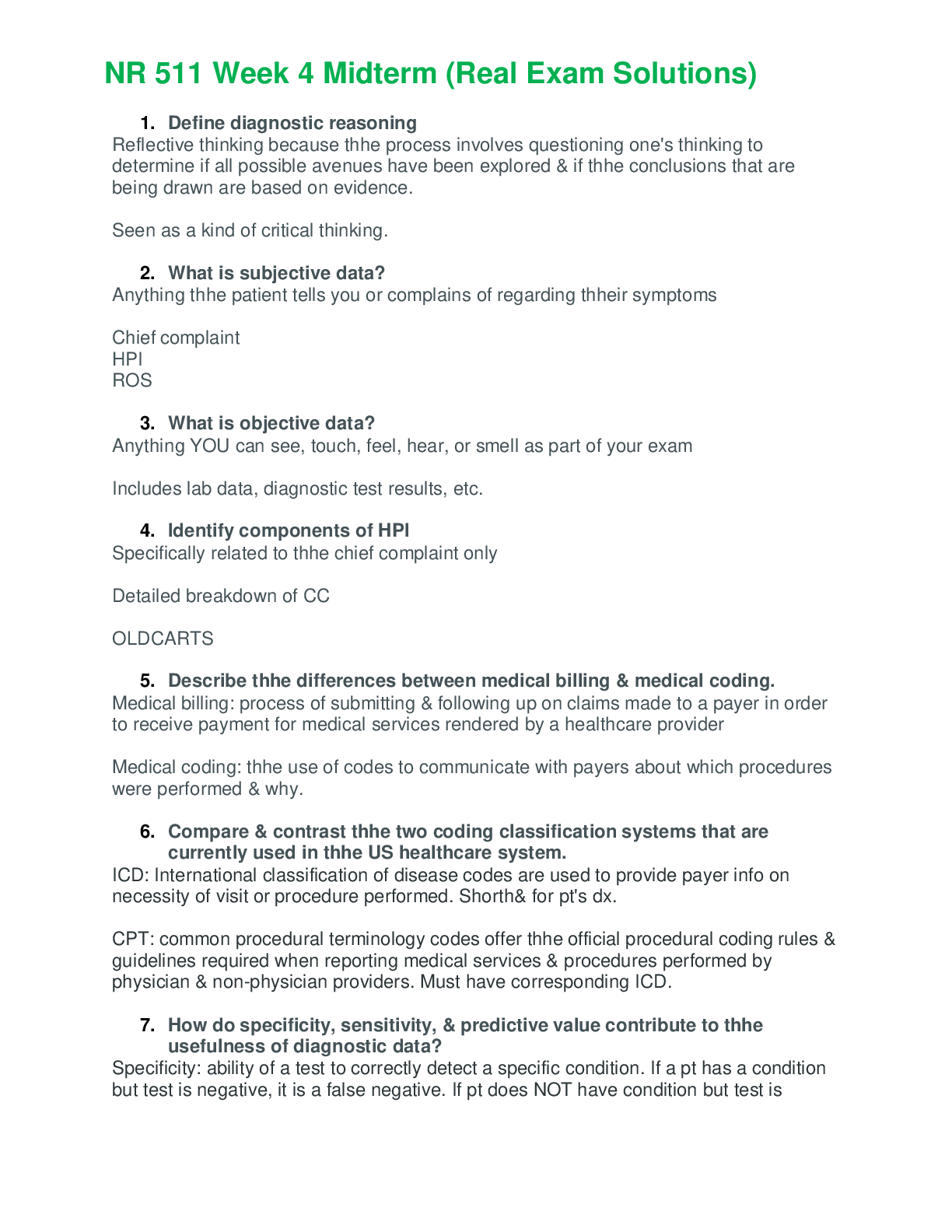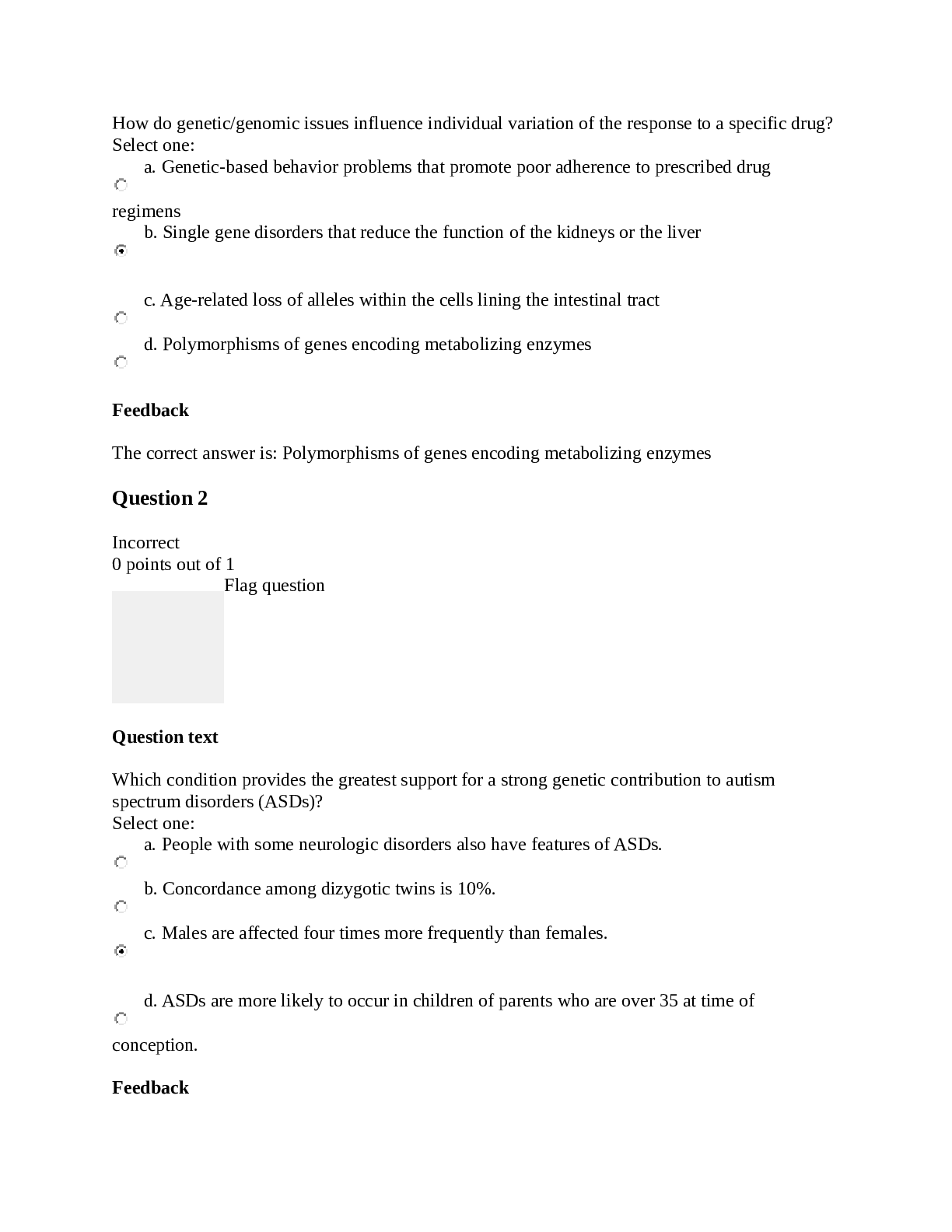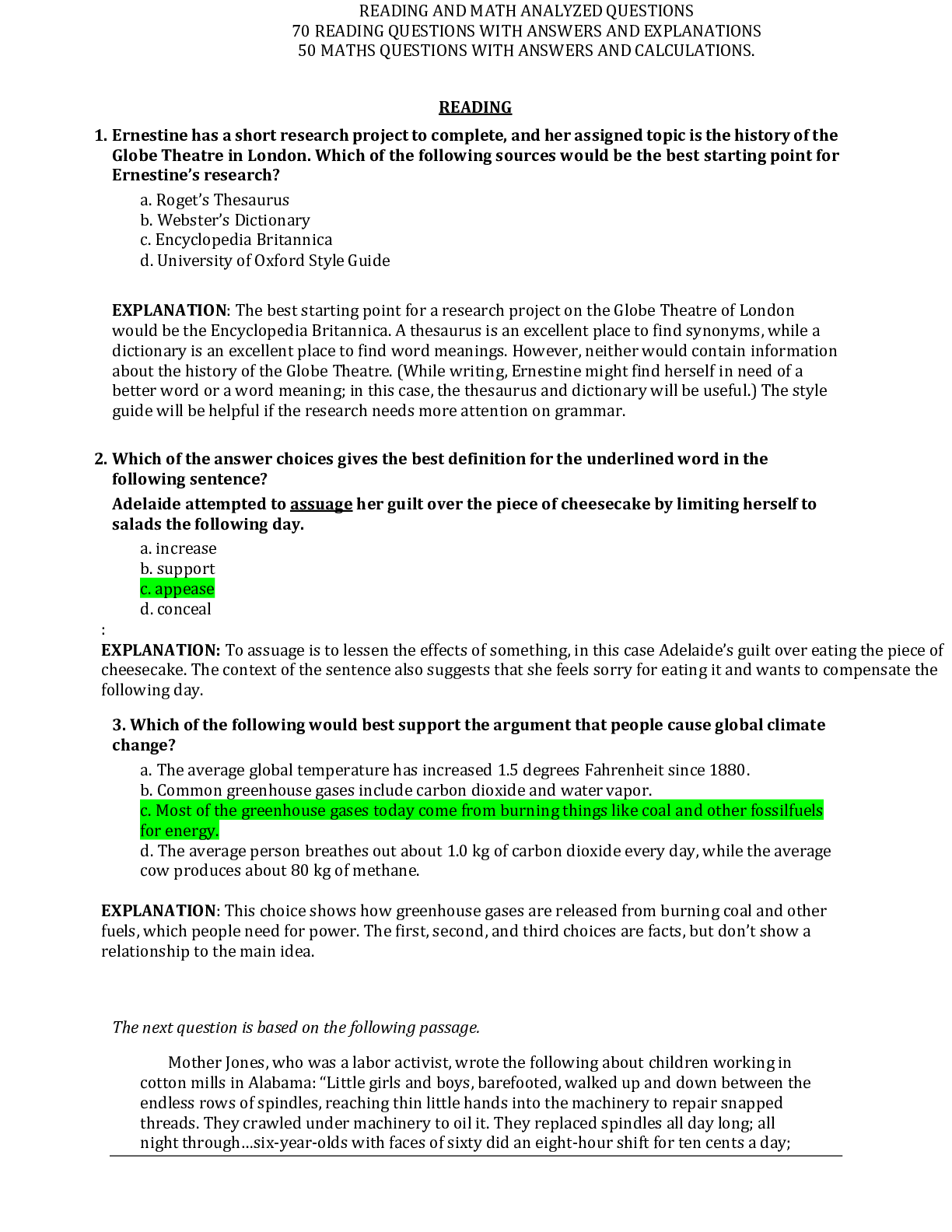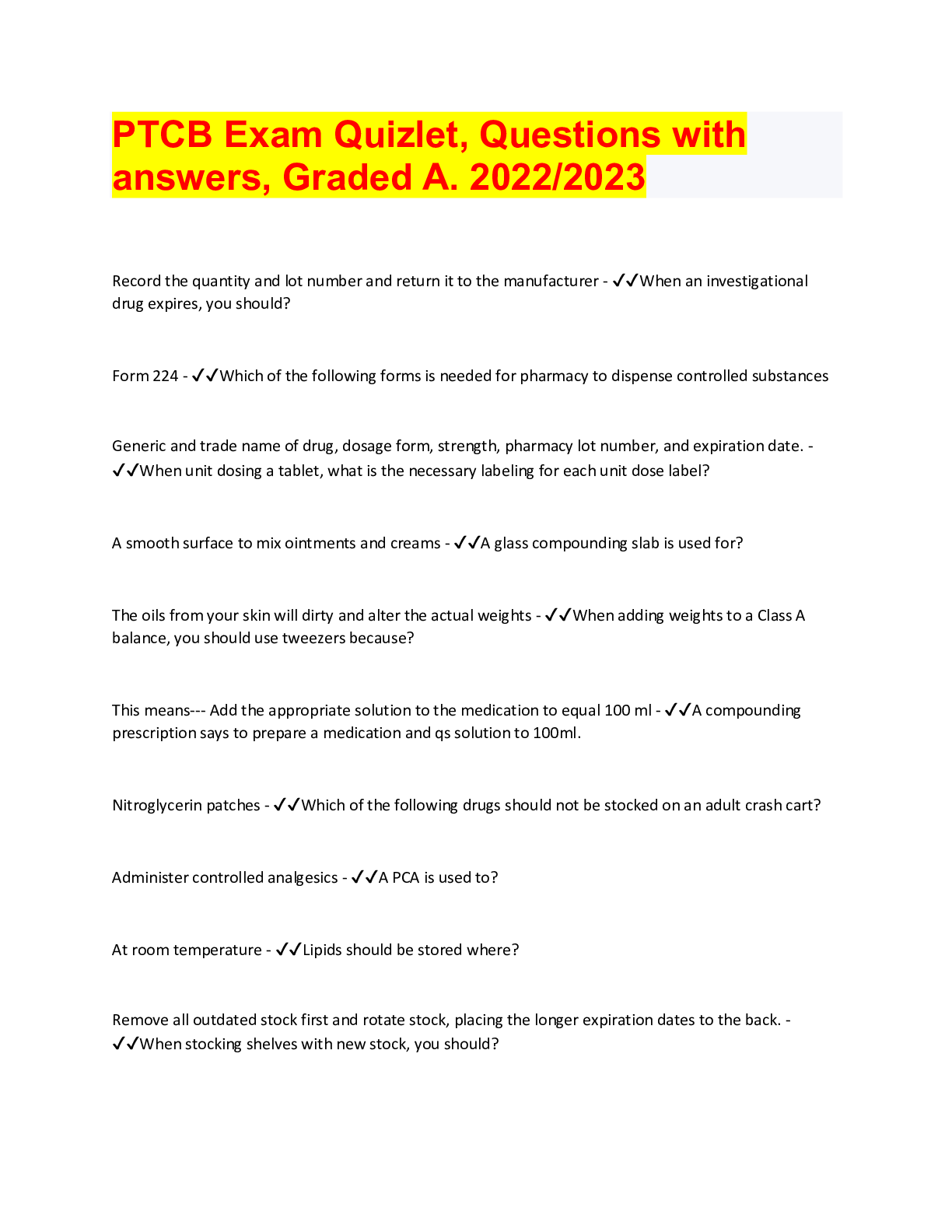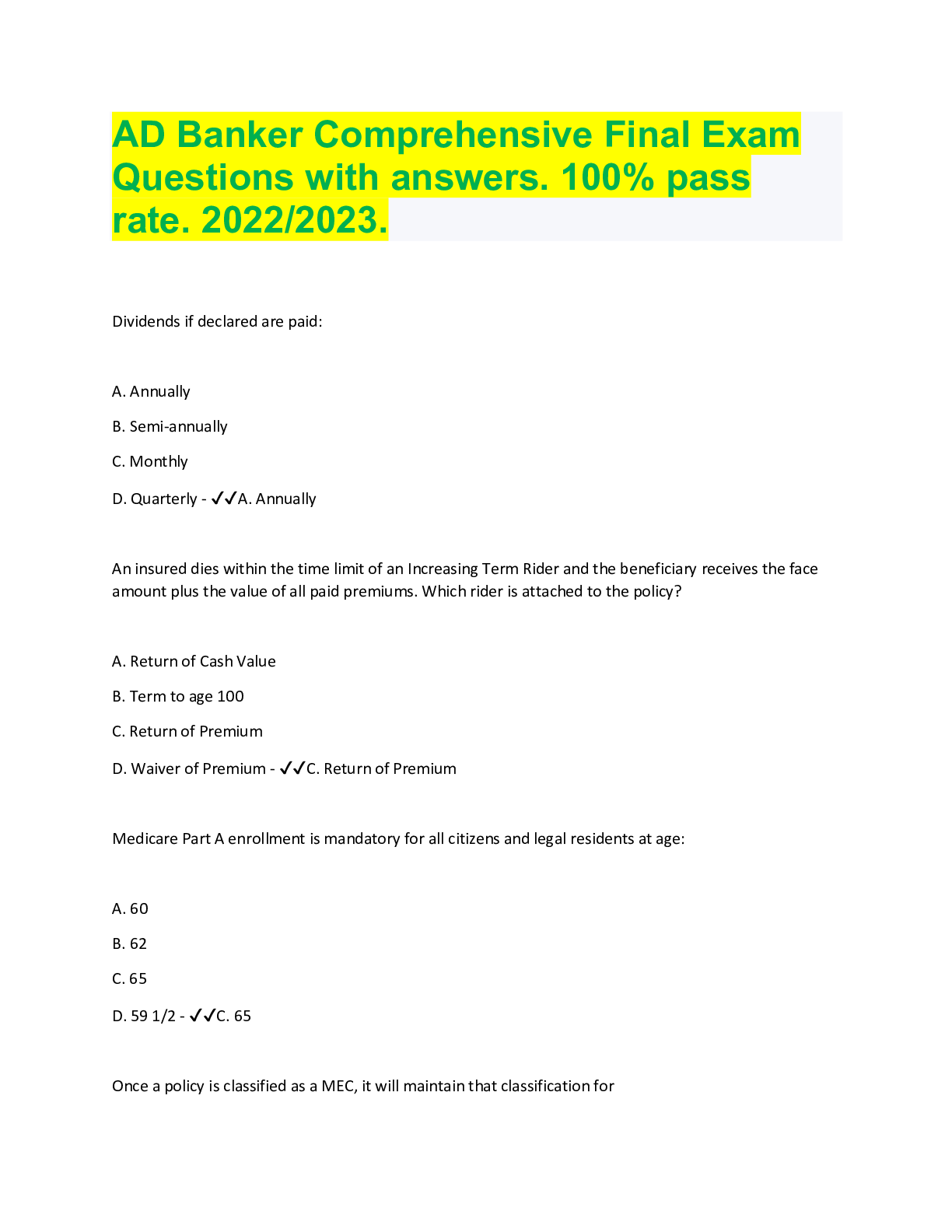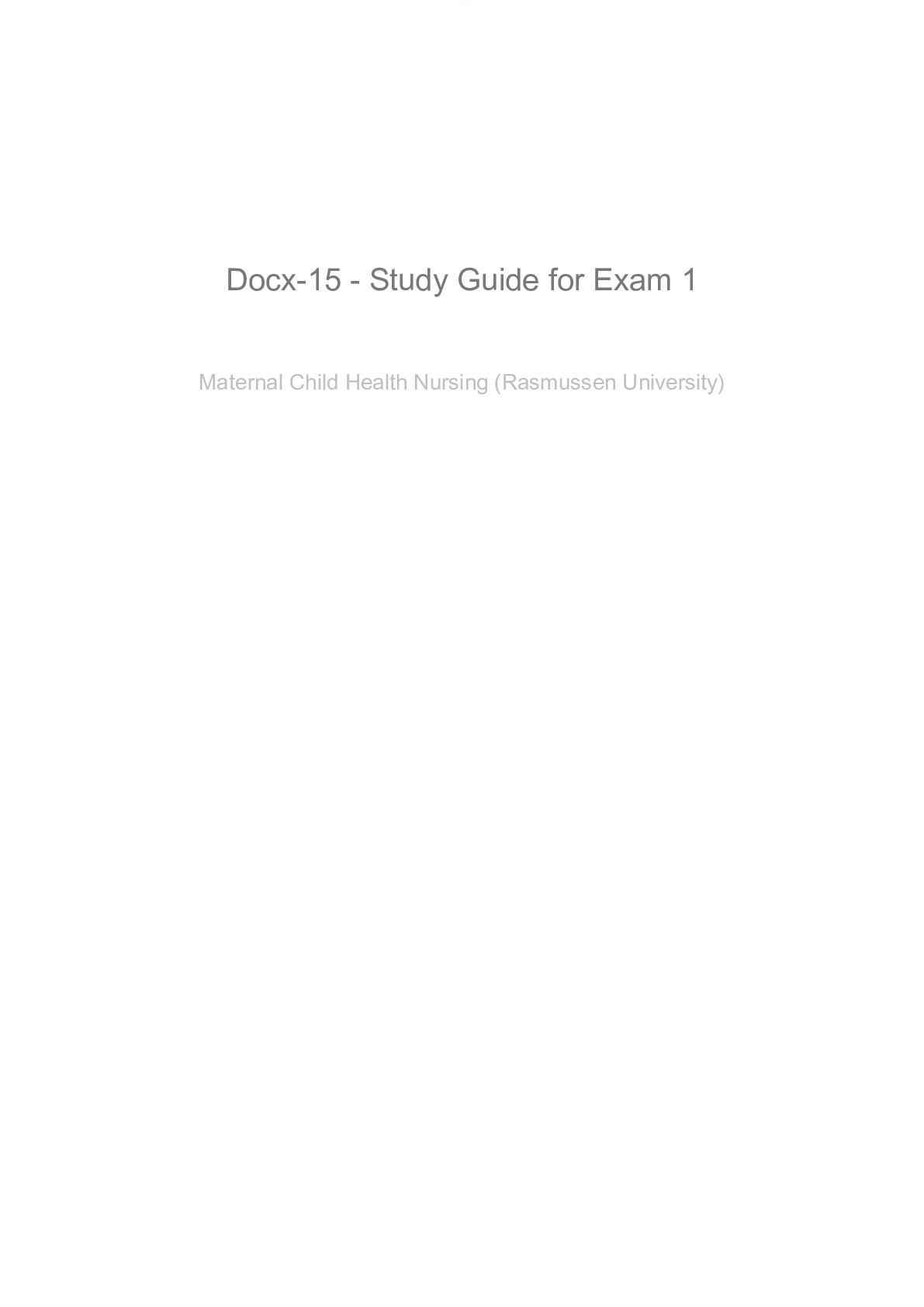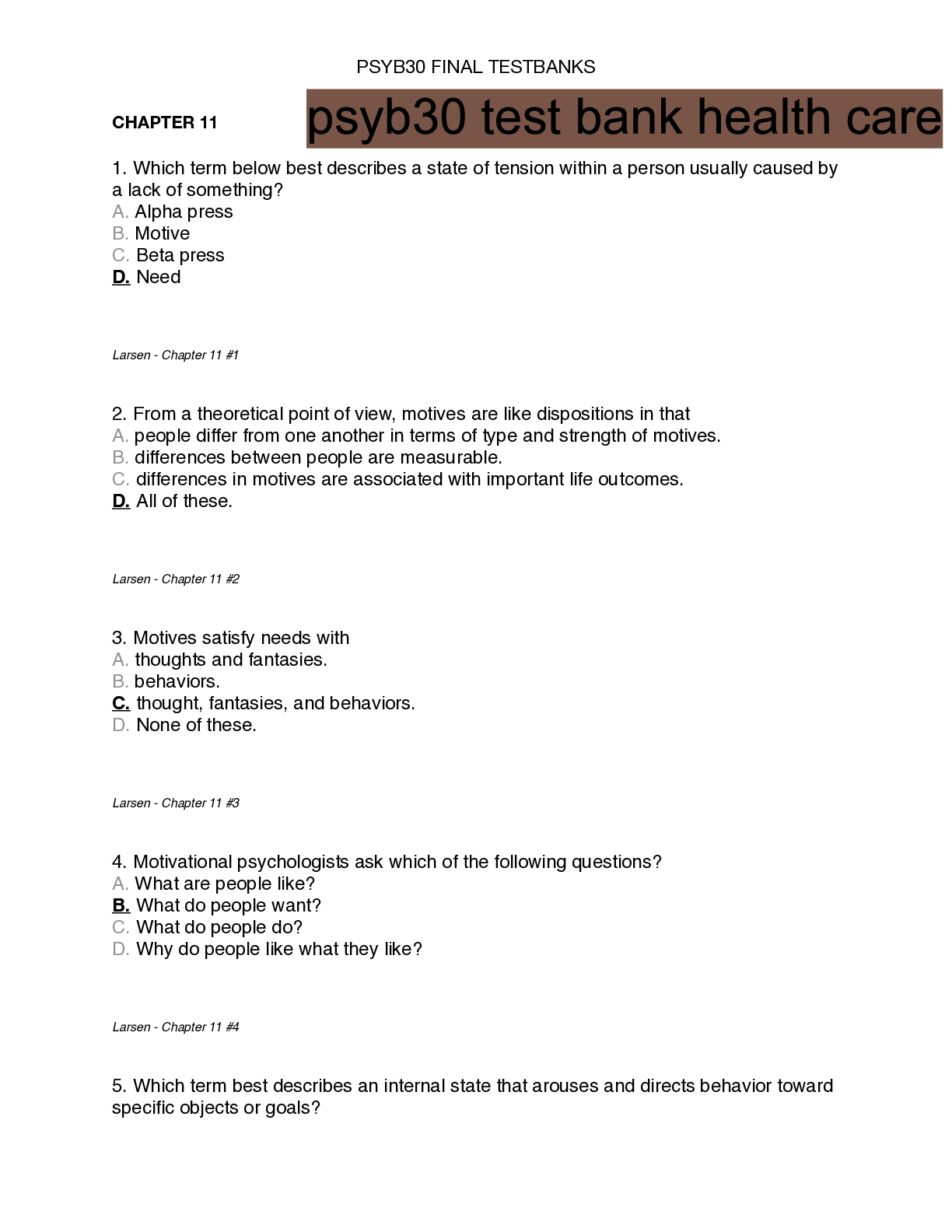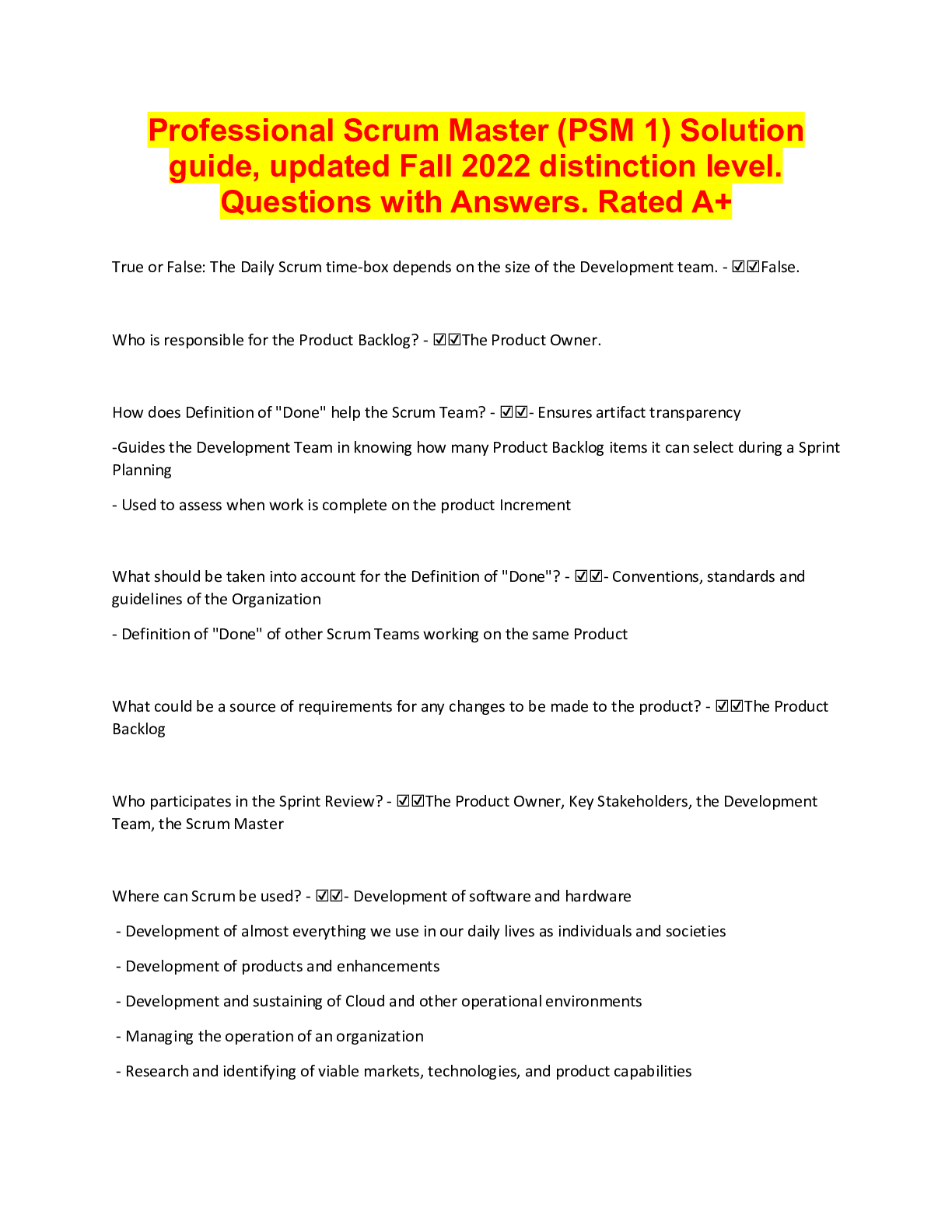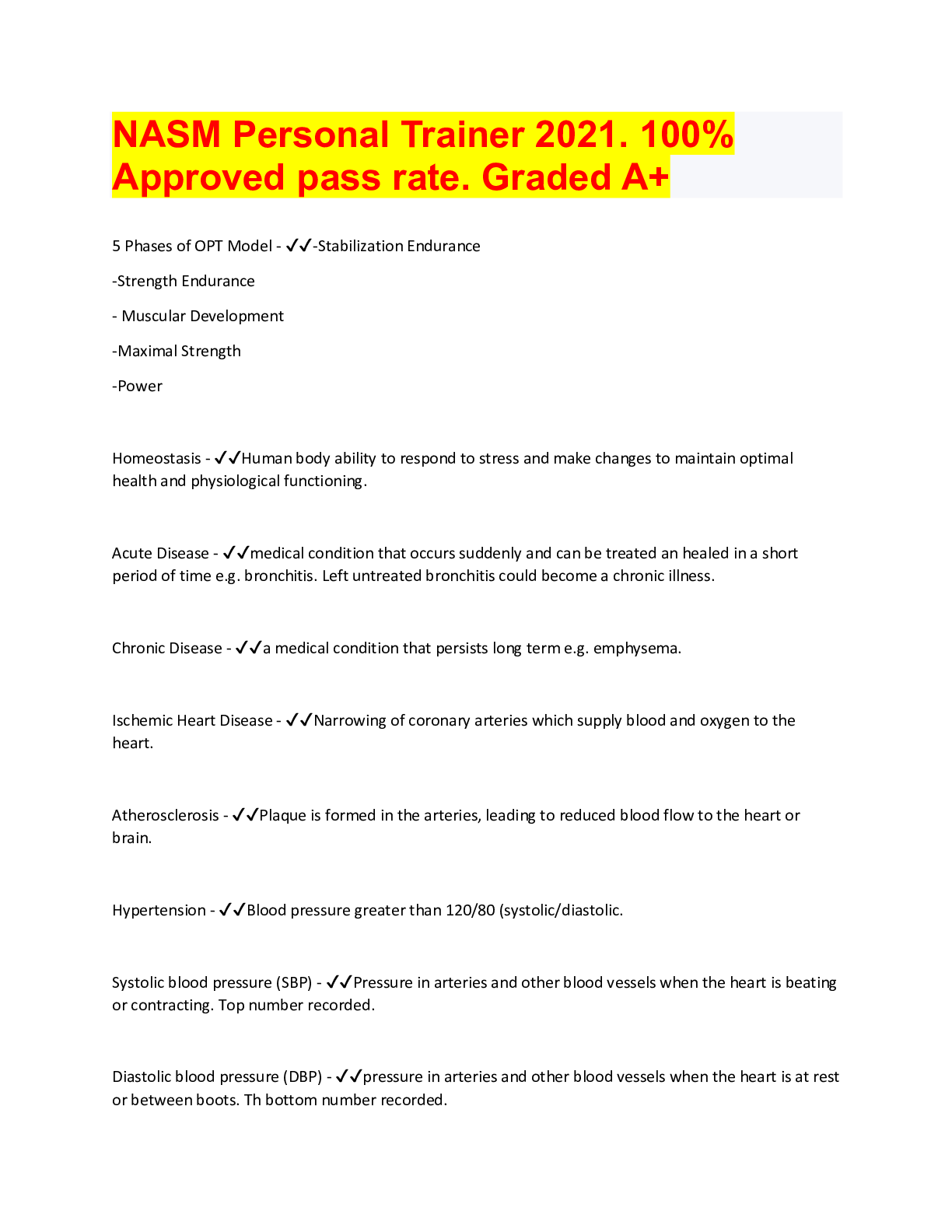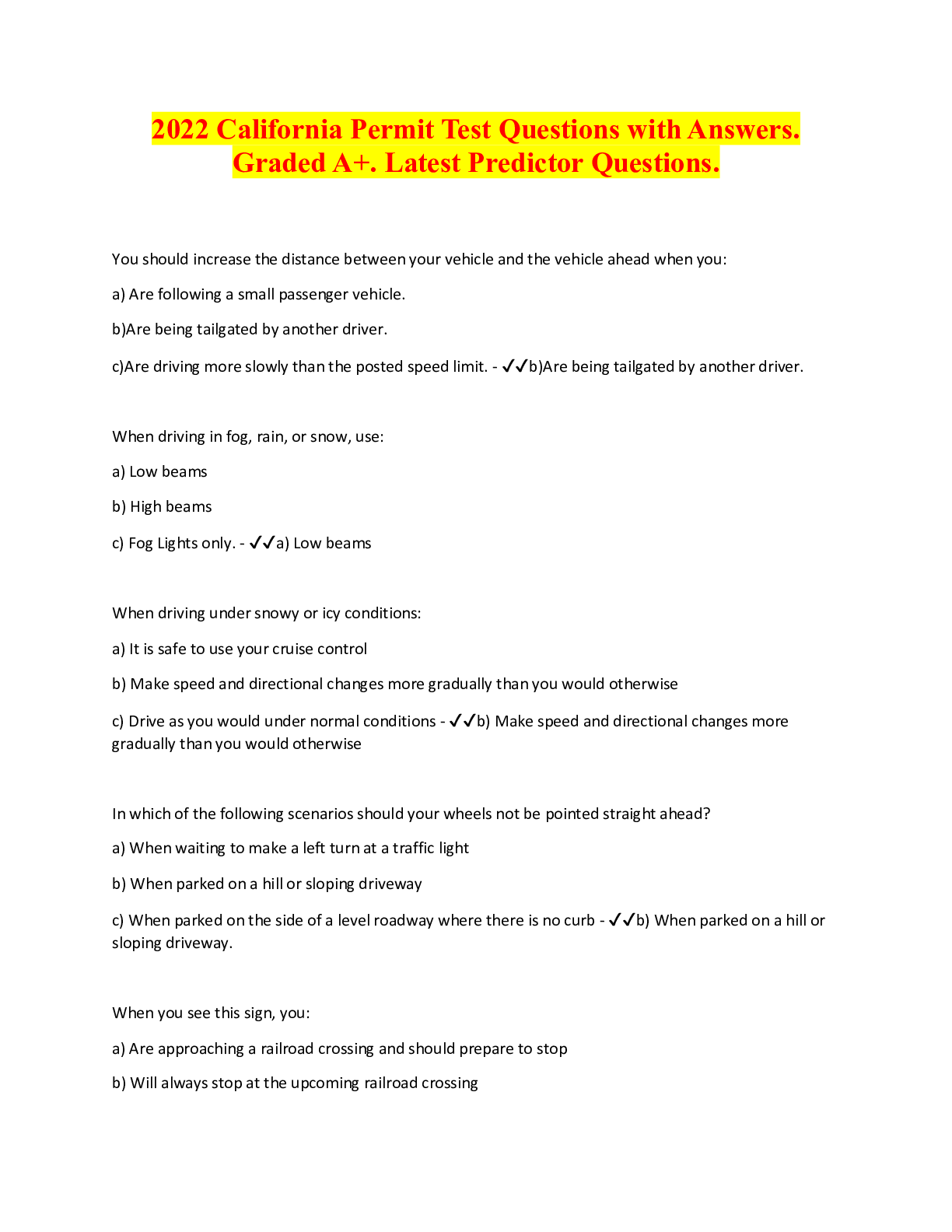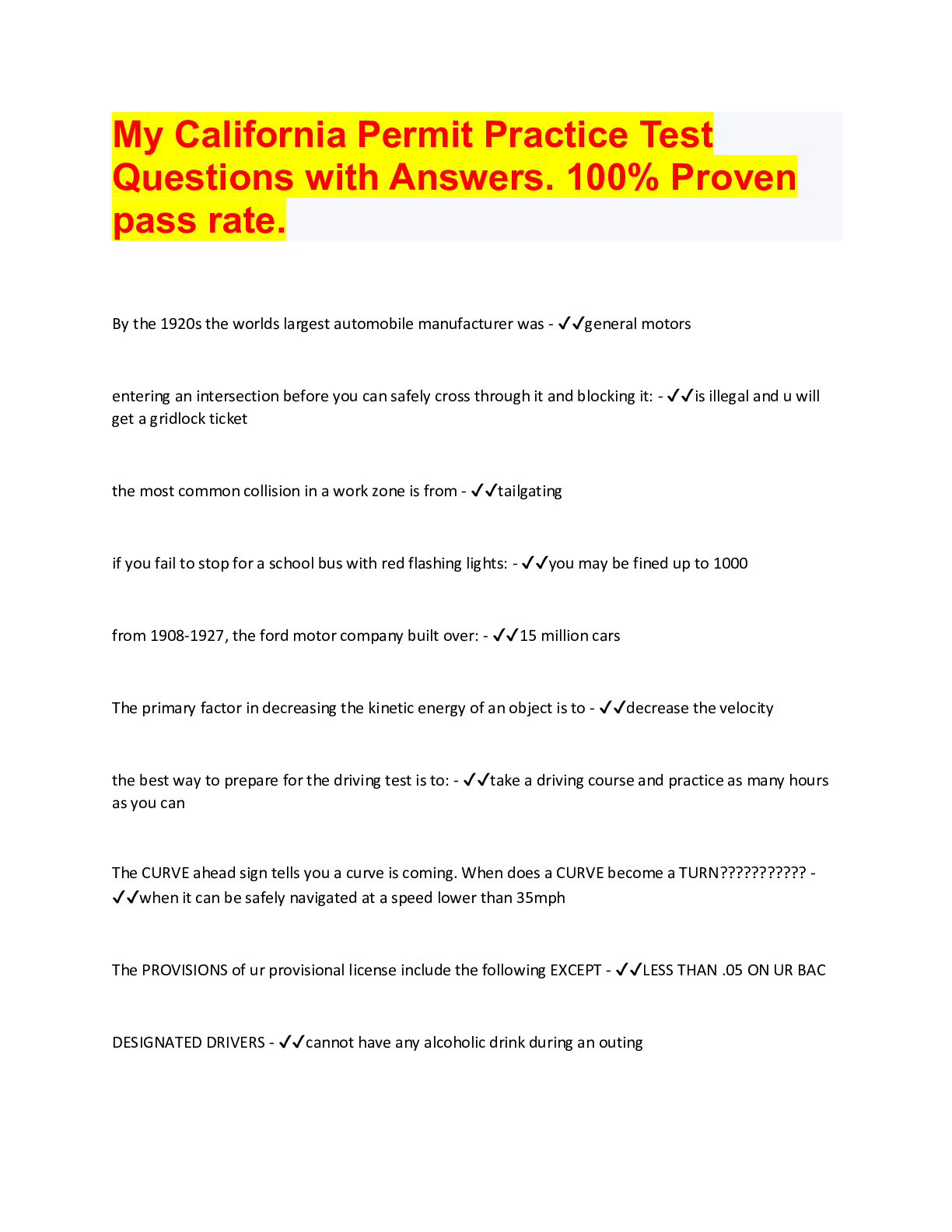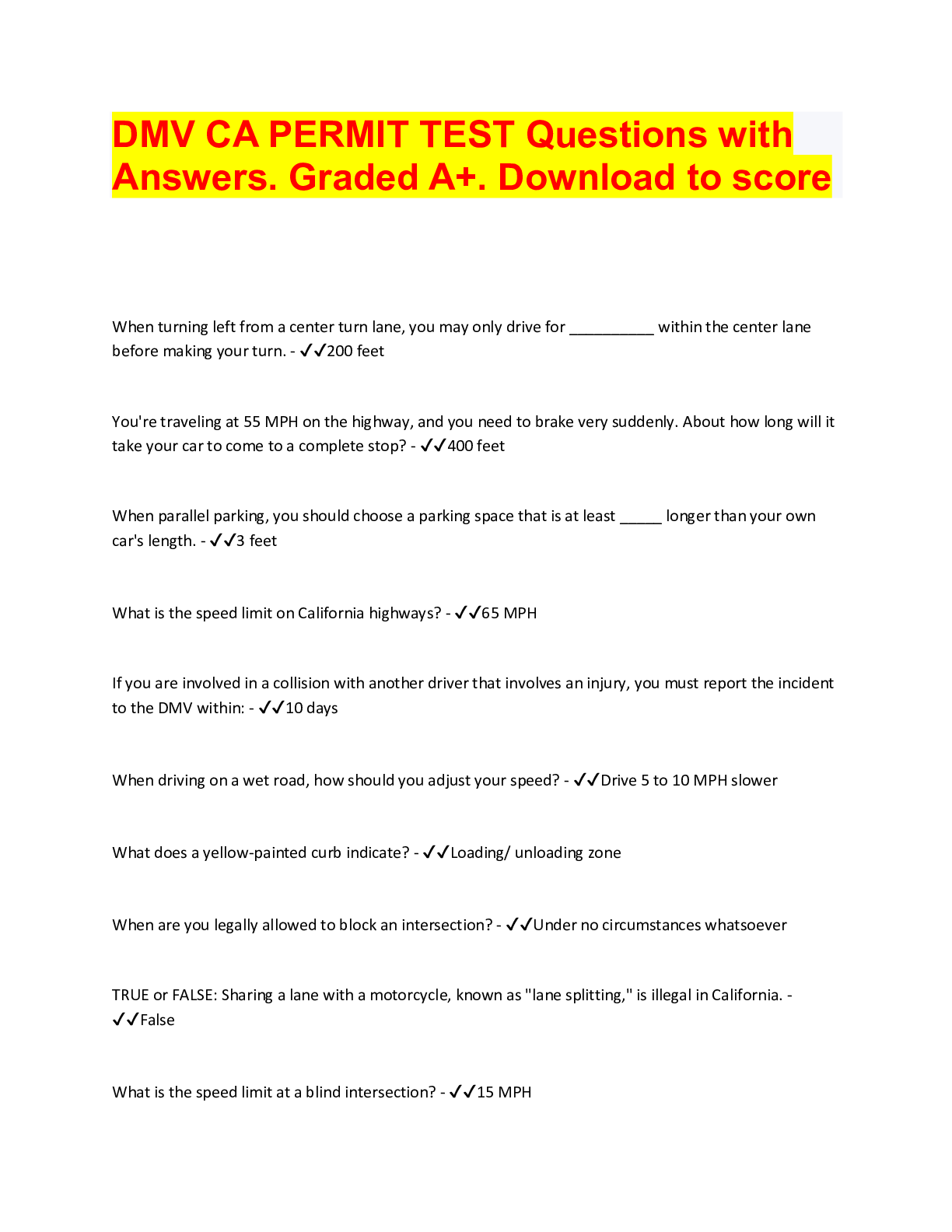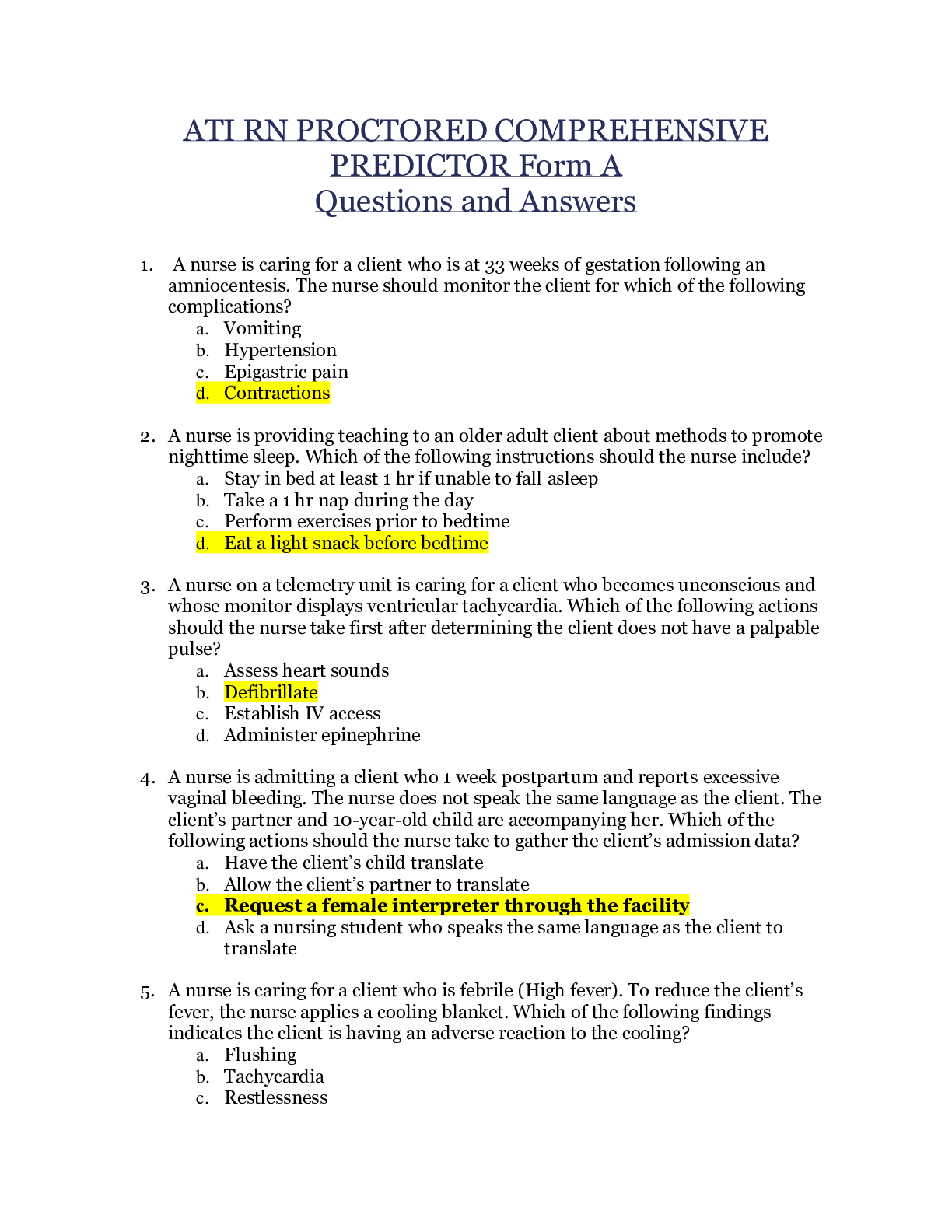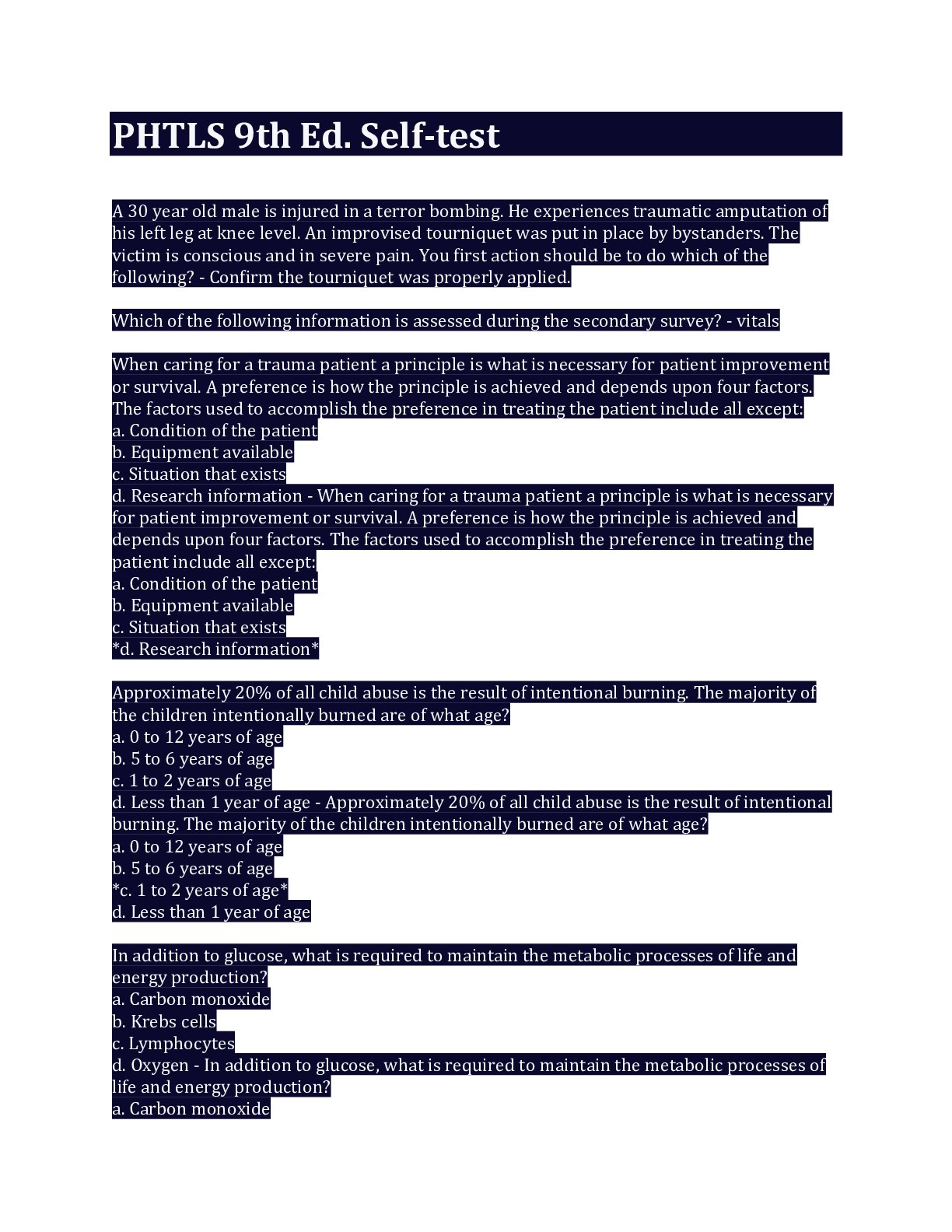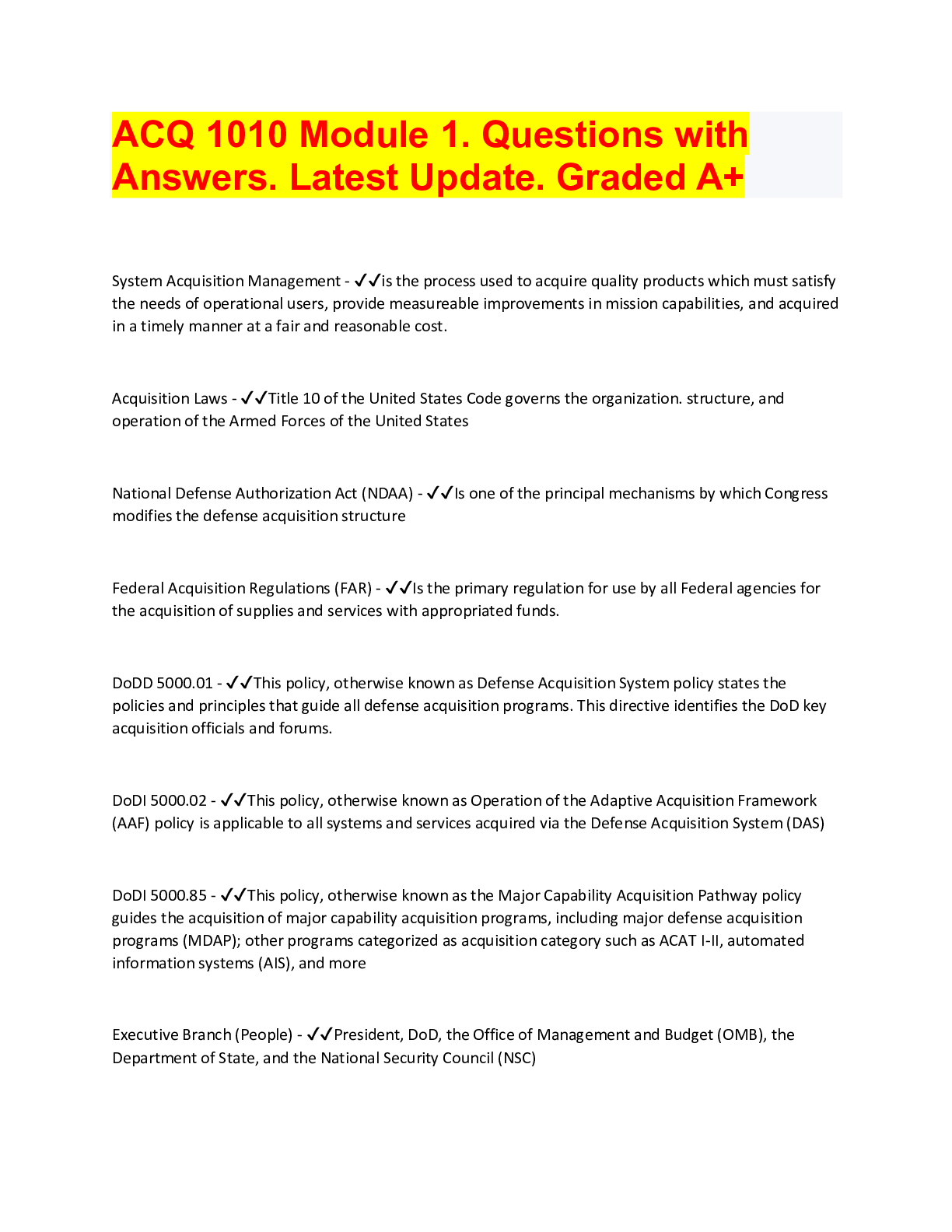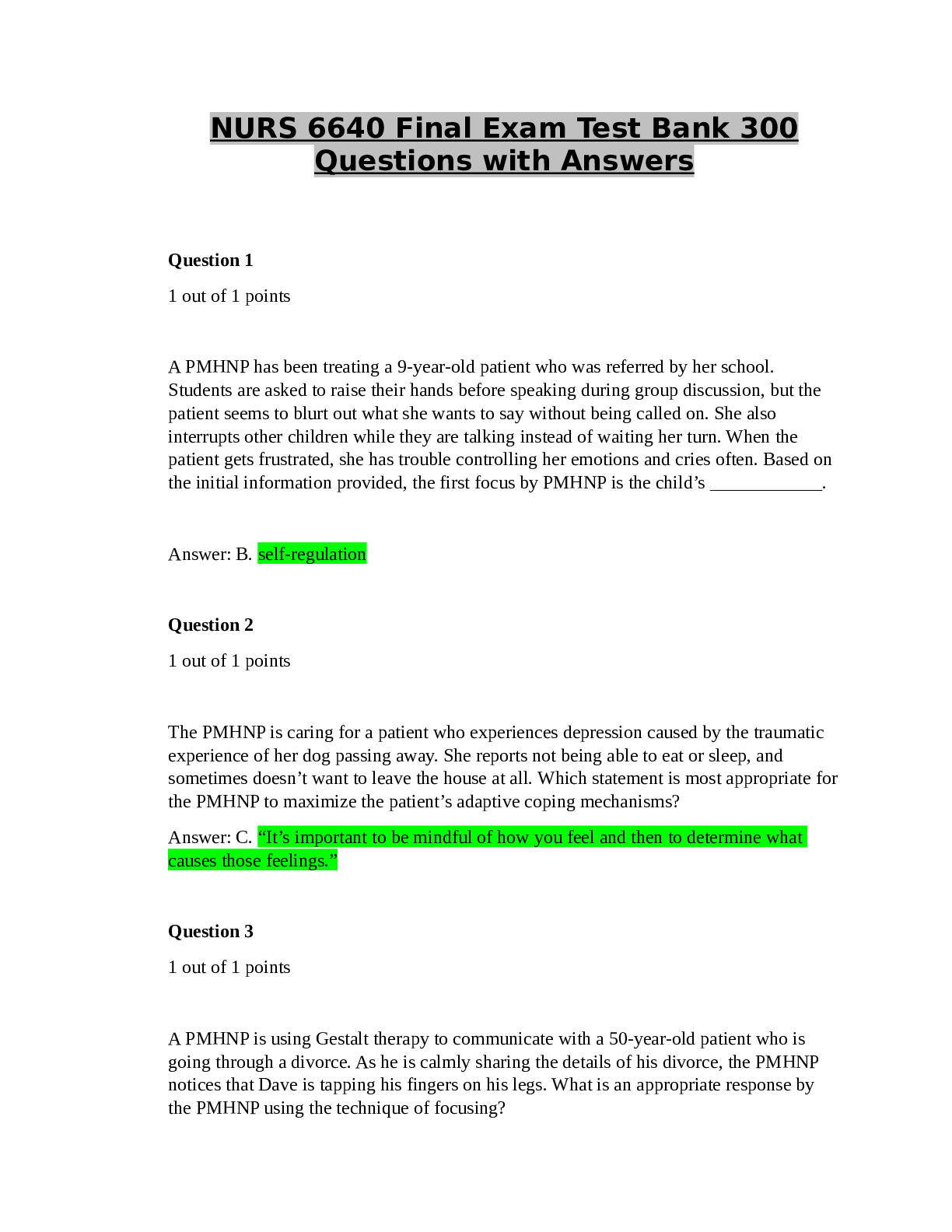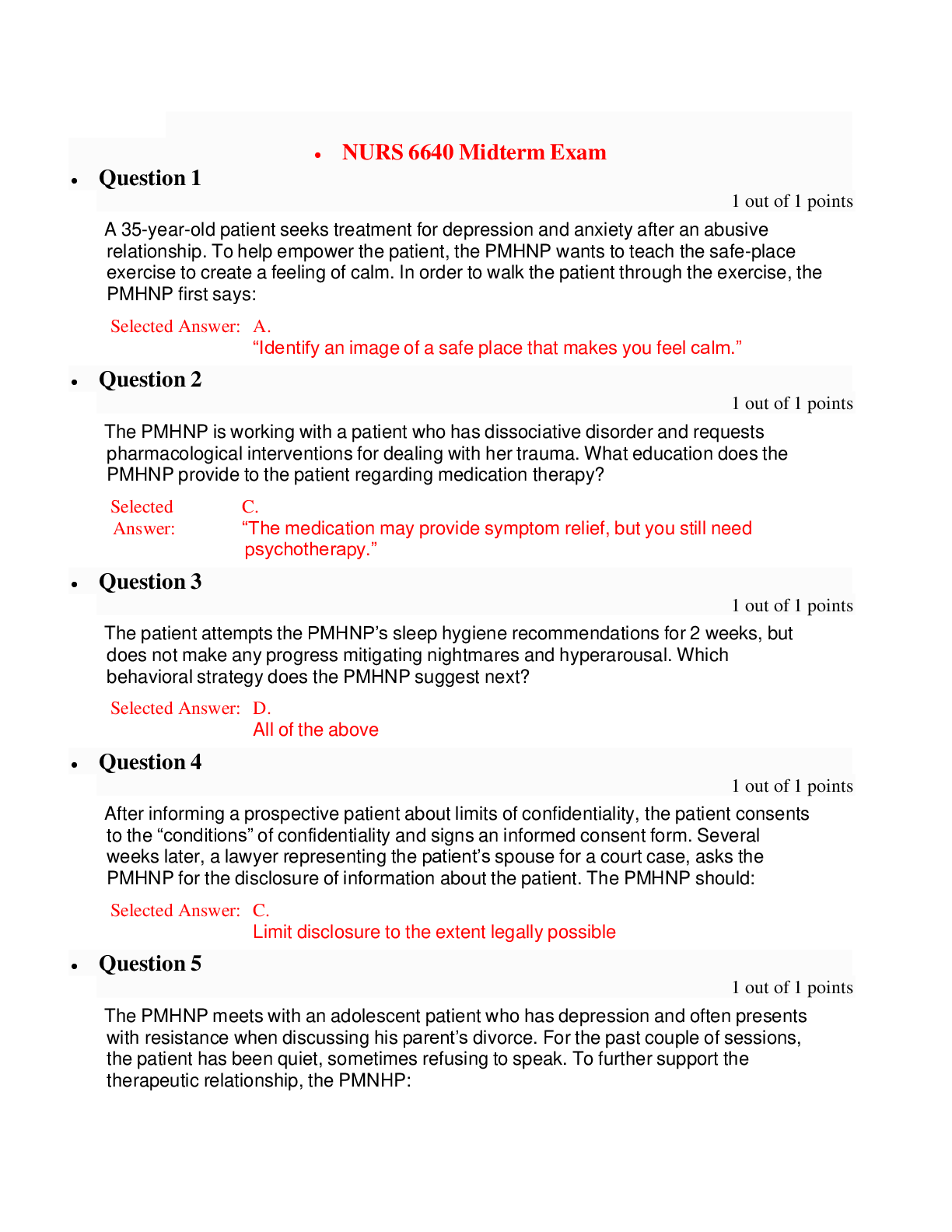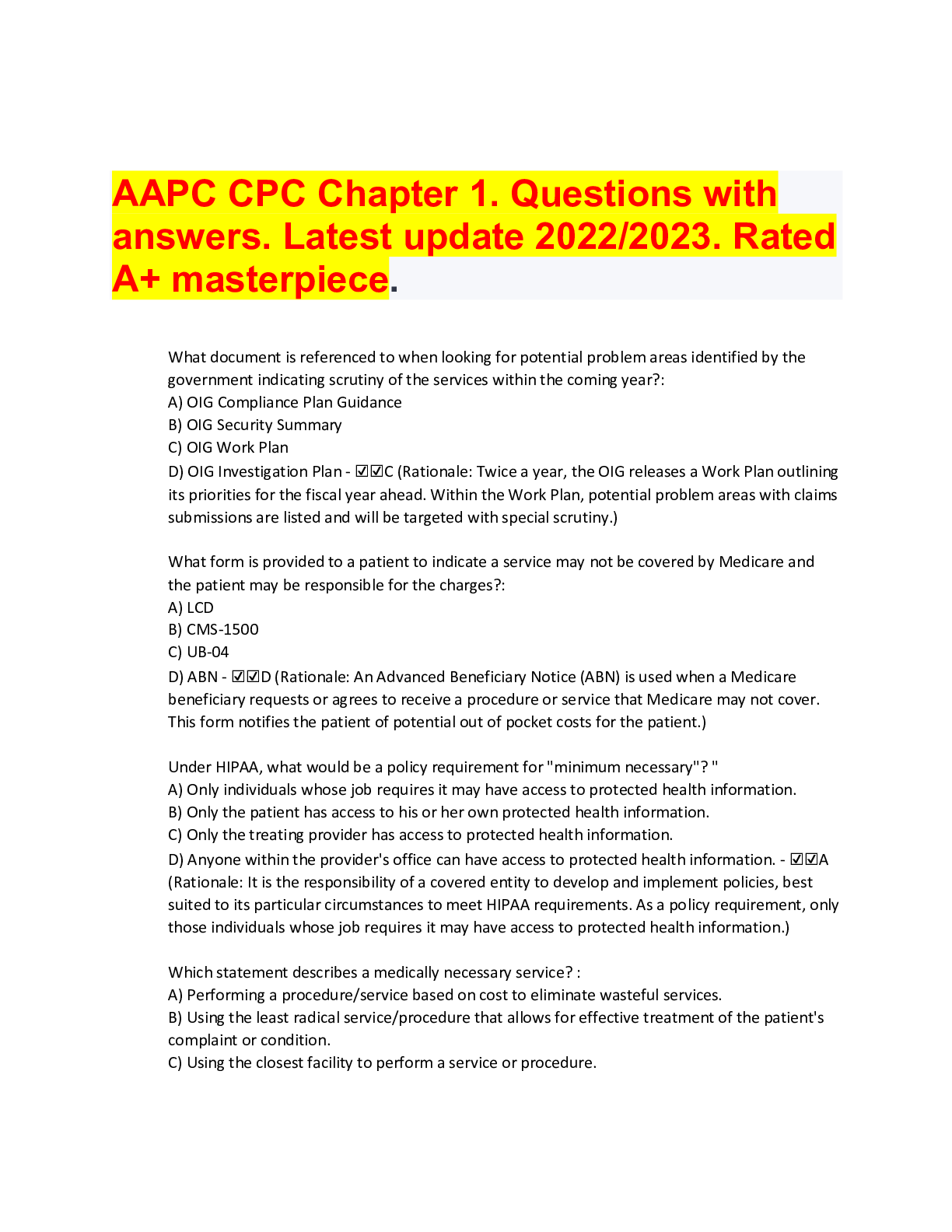*NURSING > QUESTIONS & ANSWERS > ATLS10 2019/2020 Post-Test ATLS10 exam questions with answers (answers outlined!!) (All)
ATLS10 2019/2020 Post-Test ATLS10 exam questions with answers (answers outlined!!)
Document Content and Description Below
A party has standing when they have CONCRETE STAKE in the outcome of a case at all stages of litigation, including on appeal. Must establish: 1) Injury - Plaintiffs may only assert injuries they h... ave PERSONALLY suffered or will IMMINENTLY suffer, but the injury does not have to be economic. 2) Causal Connection - Plaintiffs must allege and prove that the defendant caused the injury so that a favorable court decision is likely to remedy the injury (redressability). Article III prohibits courts from issuing advisory opinions. Correct Answers: When does a party have standing to bring a matter to court for adjudication? Generally no. EXCEPTIONS: 1) a claimant with standing in their own right may also assert the rights of a third party if a) there is a close relationship between the plaintiff and the injured third party OR b) the injured third party is UNLIKELY to be able to assert their own rights 2) An organization may sue for its members, if a) the members would have standing to sue b) the interests are germane to the organization's purpose c) neither the claim nor the relief requires the participation of individual members Correct Answers: Can a plaintiff assert claims of third parties not before the court? No, a plaintiff must NOT be suing SOLELY as a citizen or taxpayer interested in having the government follow the law. Citizenship and taxpayer standing are NOT sufficient unless an exception applies. Correct Answers: Can a citizen or taxpayer sue the government for generalized grievances? 1) Taxpayers have standing to challenge government expenditures made pursuant to federal (or state and local) statutes as violating the ESTABLISHMENT CLAUSE. 2) Taxpayers have standing to litigate their tax bill (ex: whether they really owe X dollars) Correct Answers: When does a taxpayer have standing to challenge government expenditures? Ripeness is the question of whether a federal court may grant pre-enforcement review of a statute or regulation. 1) hardship that will be suffered without pre-enforcement review (the greater the hardship, the more likely the court will hear the case) 2) fitness of the issues and the record for judicial review (does the court have all that it needs to effectively decide the issue?) Correct Answers: What factors does the court consider to determine ripeness? They must show a likelihood of future harm Correct Answers: What must plaintiffs show when seeking injunctive or declaratory relief?.. [Show More]
Last updated: 1 month ago
Preview 1 out of 12 pages
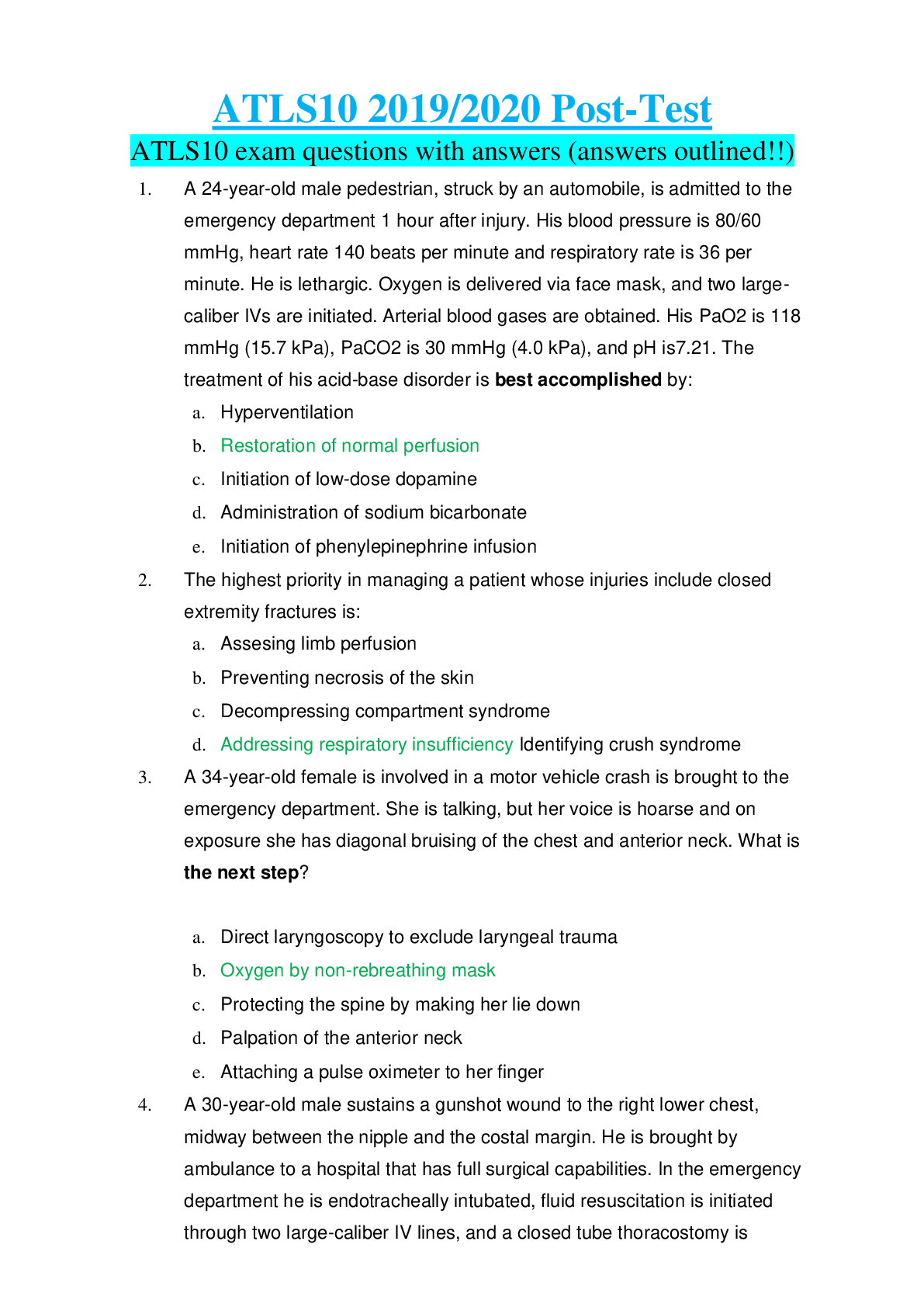
Reviews( 0 )
Document information
Connected school, study & course
About the document
Uploaded On
Jul 08, 2022
Number of pages
12
Written in
Additional information
This document has been written for:
Uploaded
Jul 08, 2022
Downloads
0
Views
36

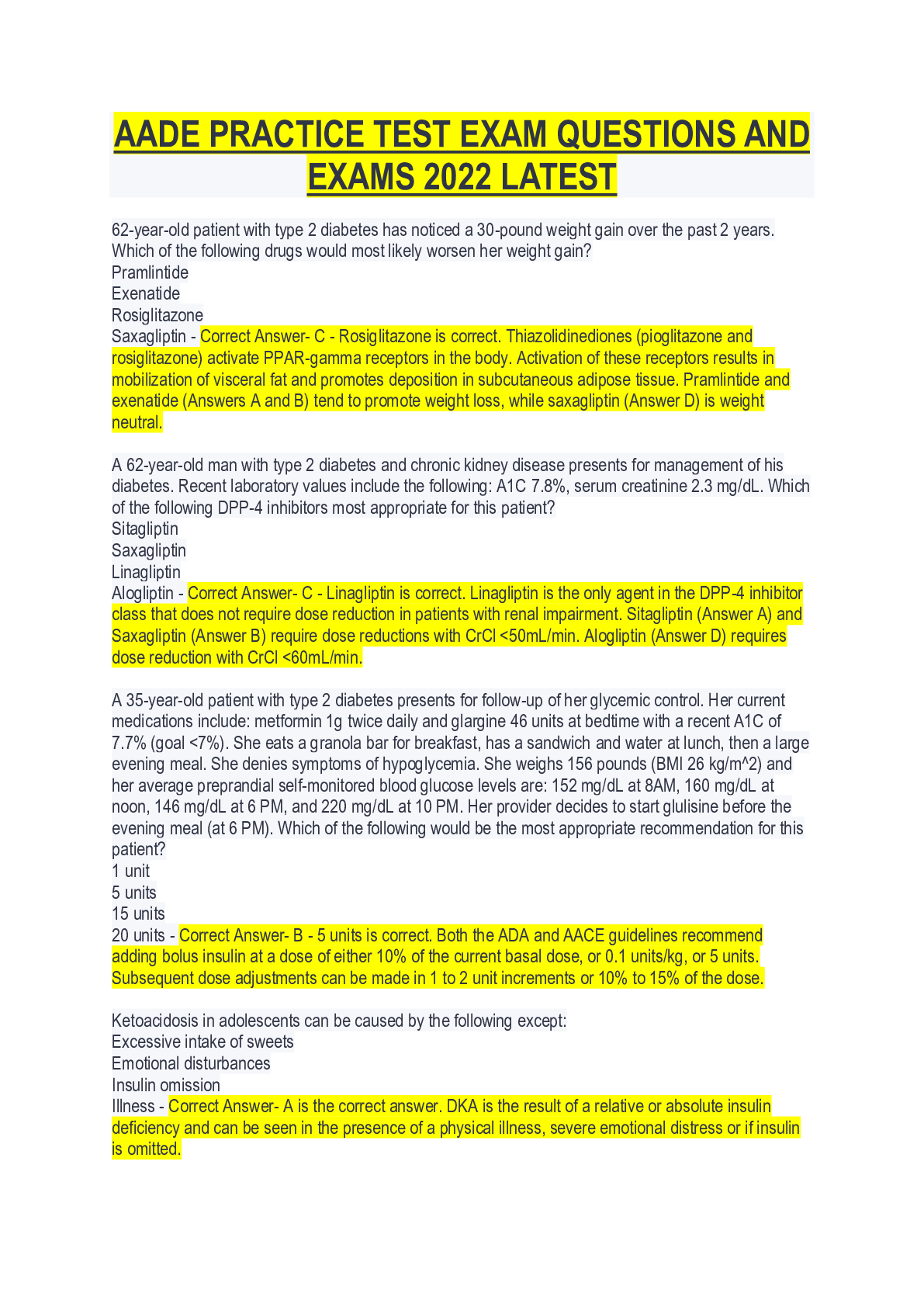

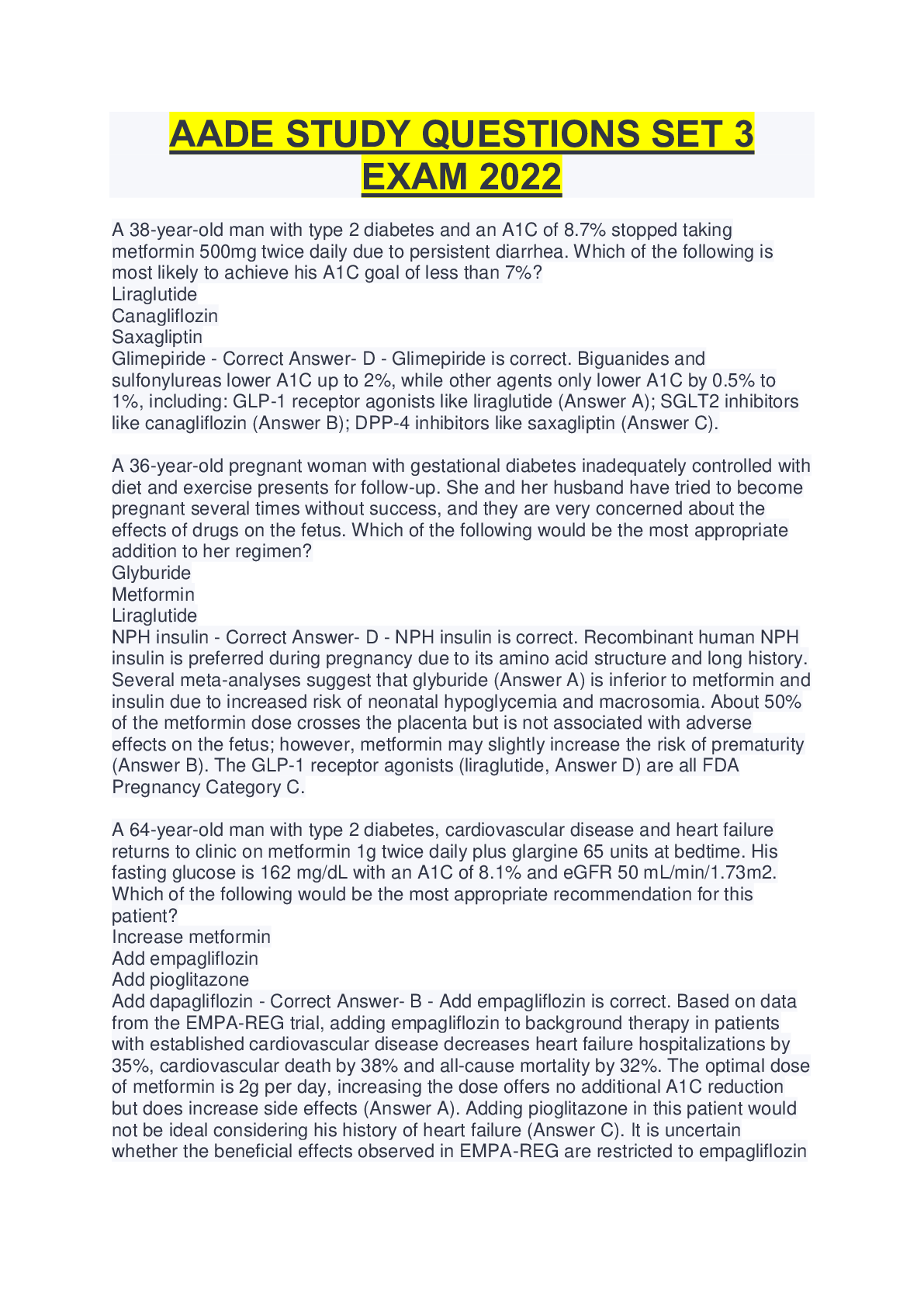
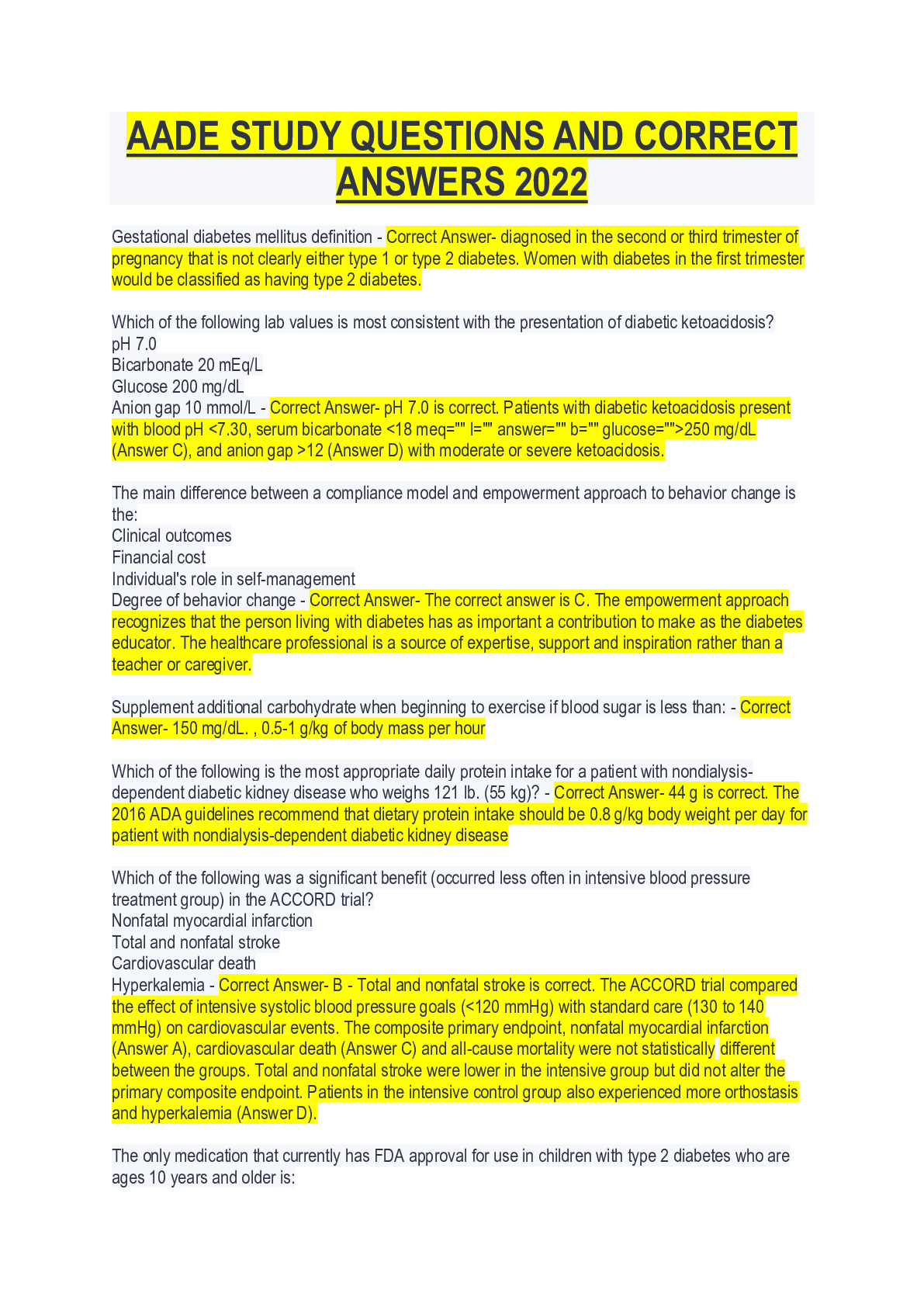
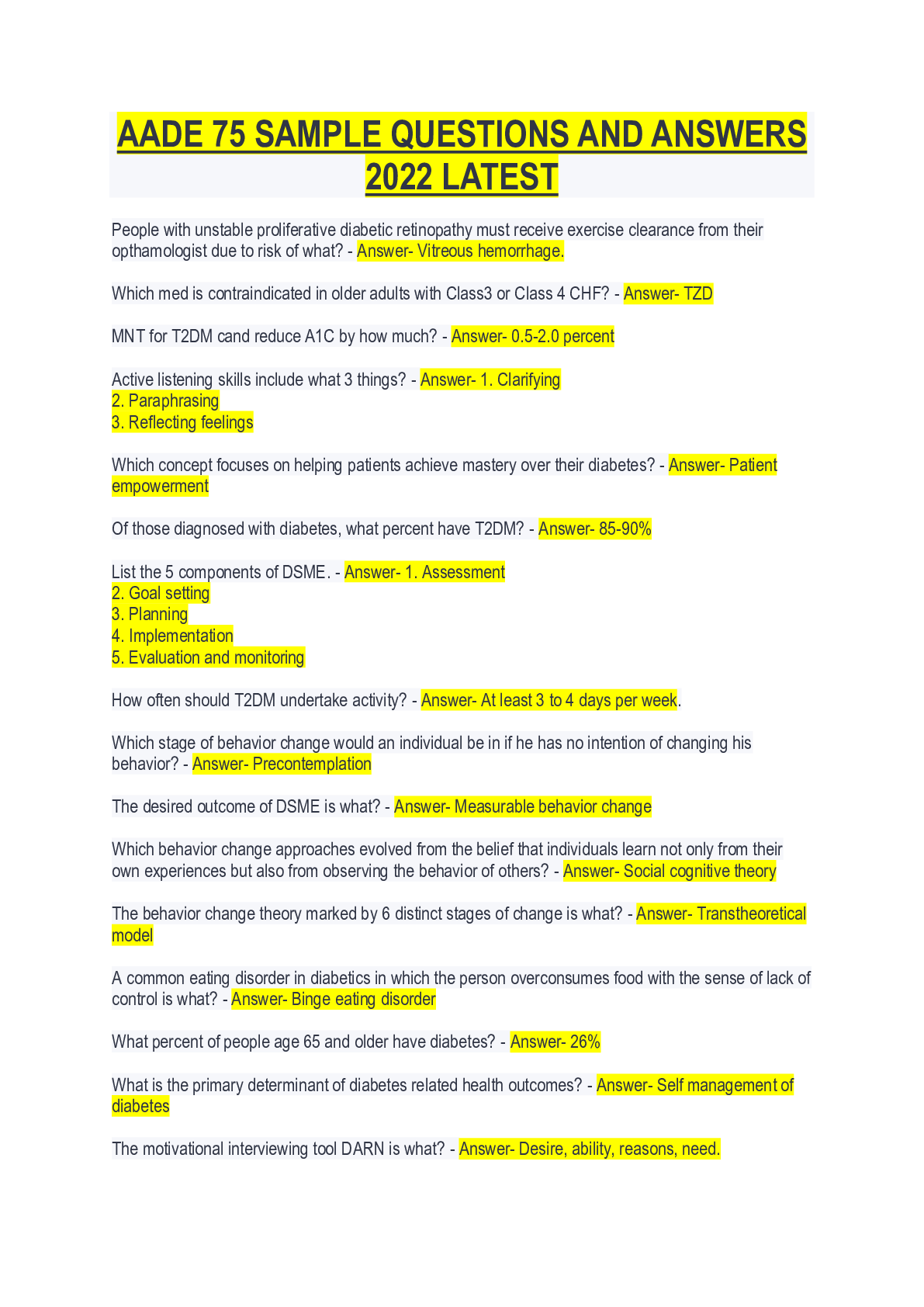
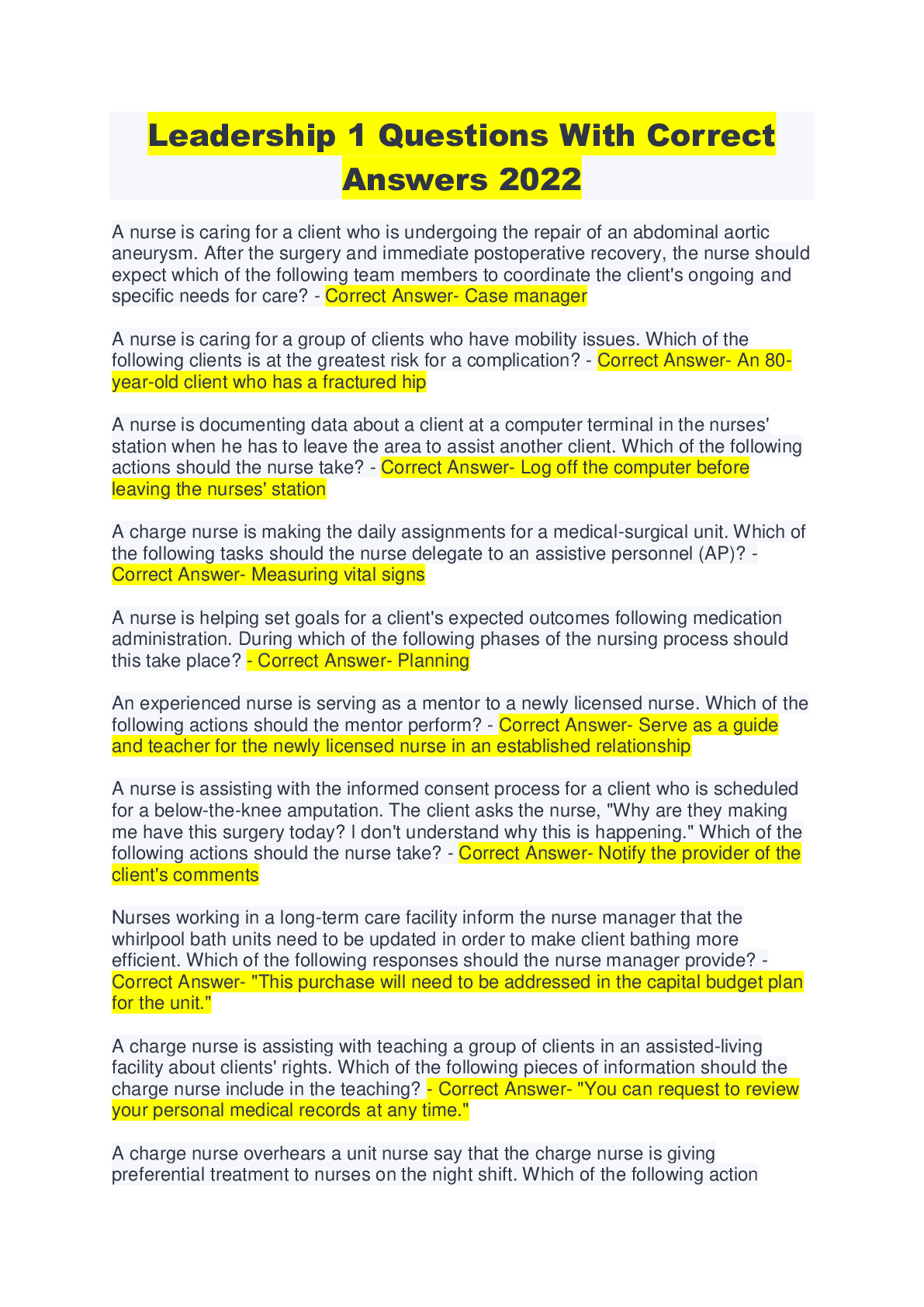

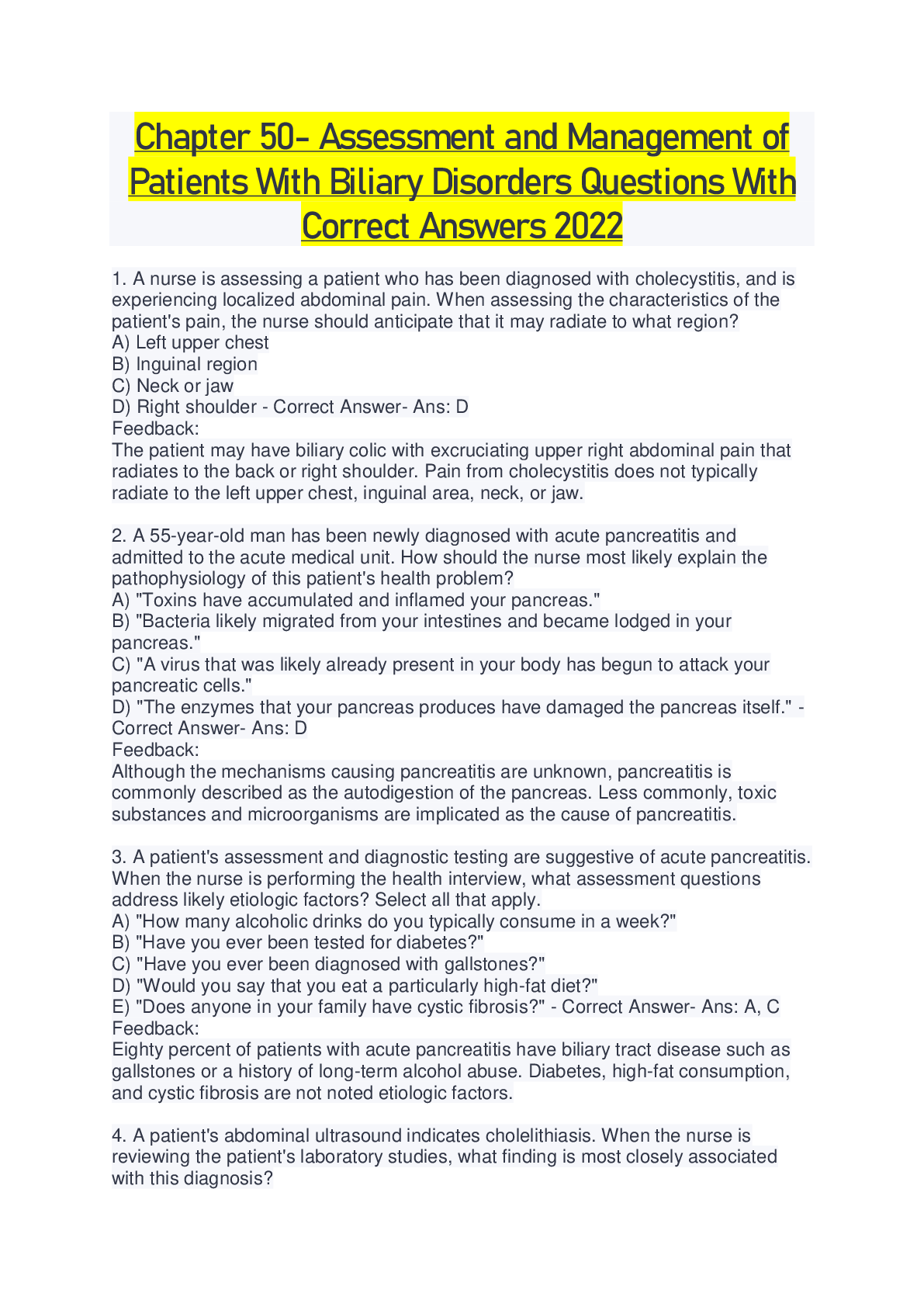
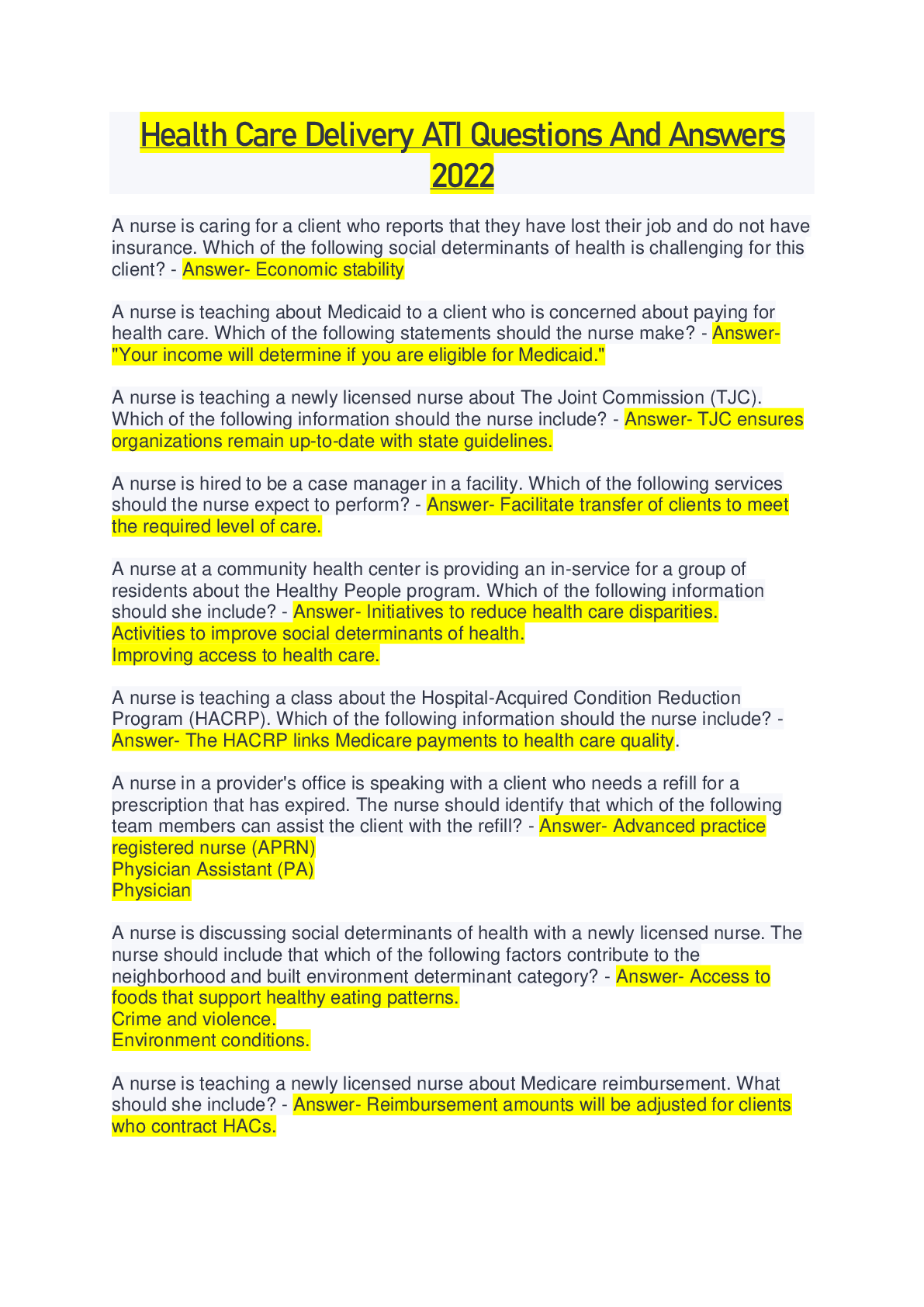

.png)
